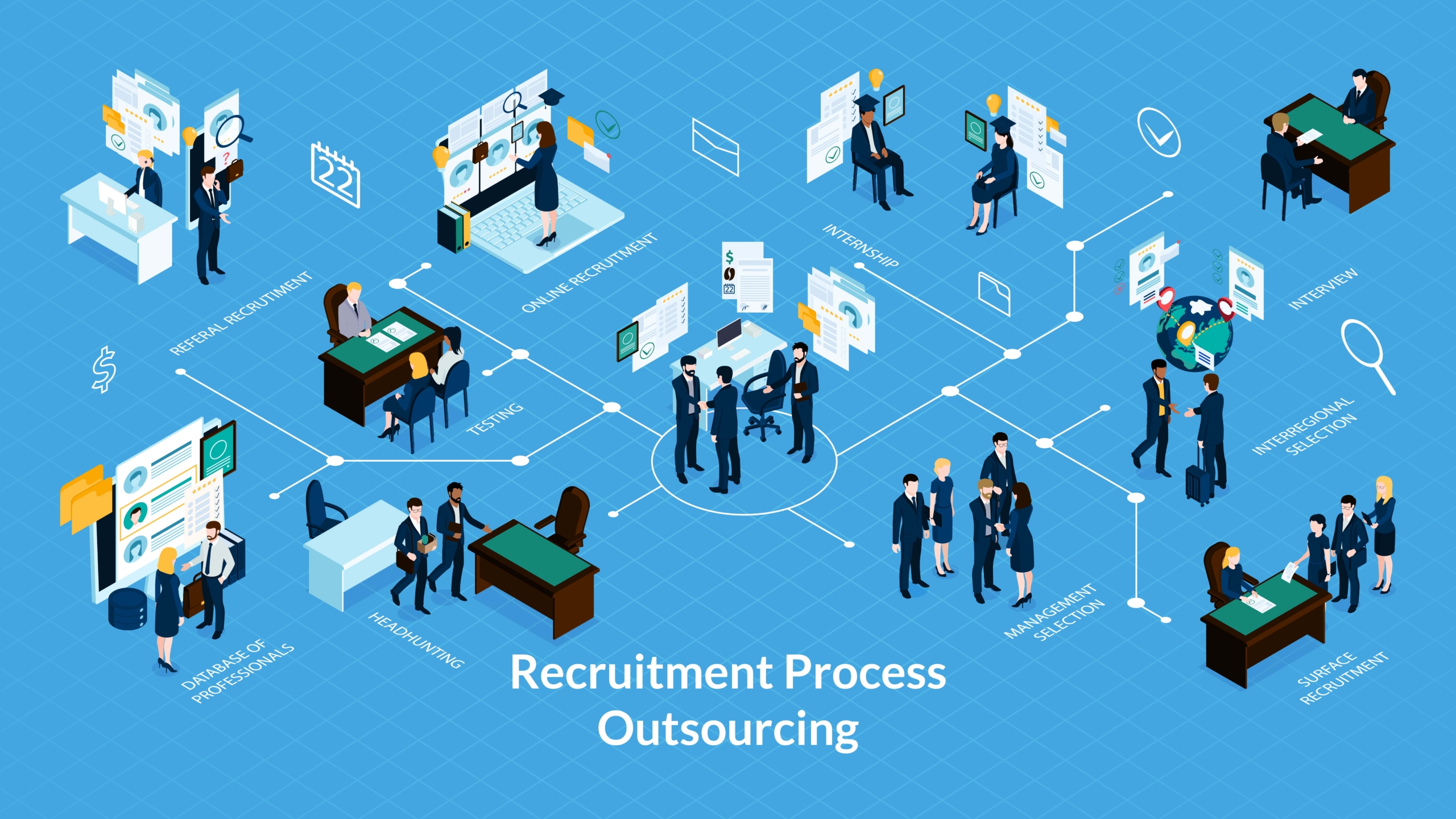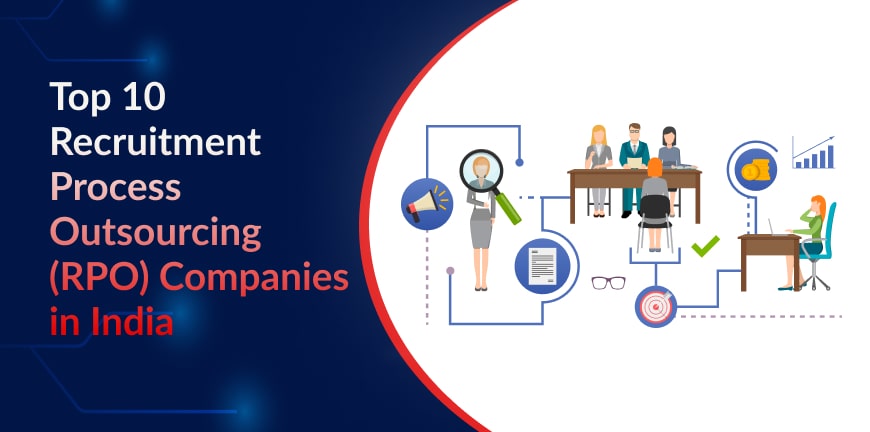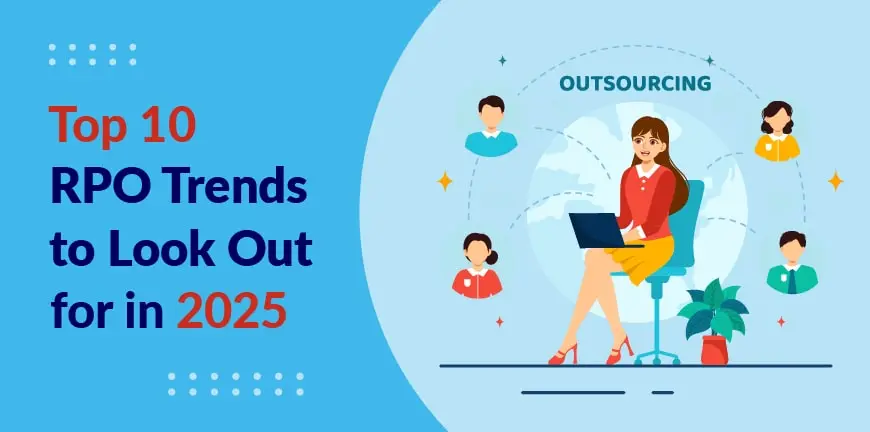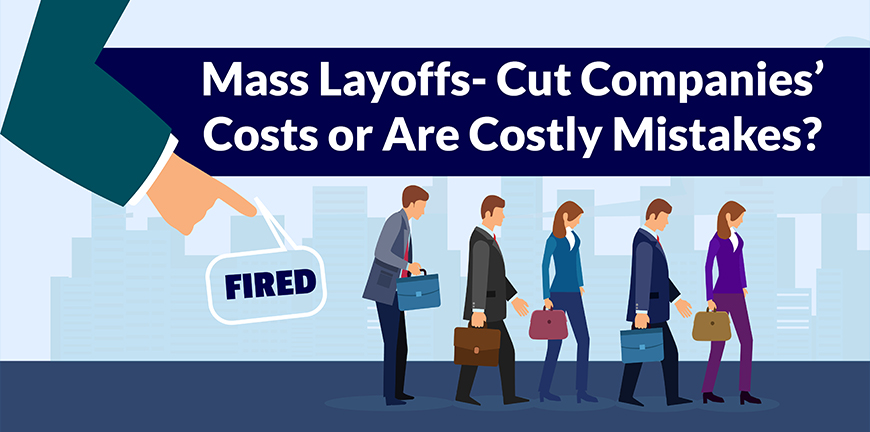
Do Mass Layoffs Help Companies Cut Costs or Are They Costly Mistakes?
10/03/2023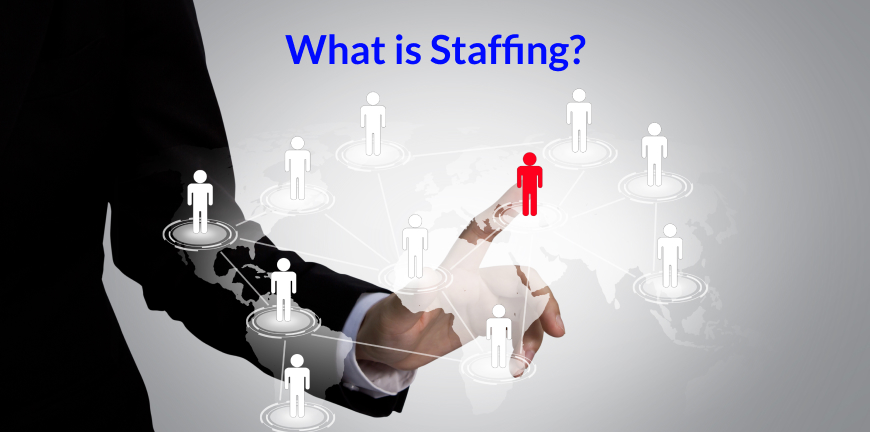
What is Staffing? Definition, Importance, Features
04/04/2023Definition of RPO
What’s the main factor that influences the success or failure of a company? A successful business depends on the company’s ability to attract and retain the best candidates in the industry. In today’s competitive landscape, finding people with the right skills is extremely challenging.
A Recruitment Process Outsourcing solution typically takes care of the entire recruitment process of a client’s organization. It is a complete recruitment outsourcing solution that includes candidate recruitment, screening, assessment, scheduling interviews, negotiation, onboarding, and exit interviews.
Recruitment Process Outsourcing is a versatile, comprehensive, customizable, full-service solution designed to meet an organization’s specific needs and challenges and can be deployed to any geographic region, division or department. It is an end-to-end talent acquisition solution that takes care of all aspects of a recruitment process except the hiring decision.
Advantages of Recruitment Process Outsourcing
There are numerous benefits to RPO outsourcing. Some of the major benefits are-
1. A dedicated team of recruiting experts
RPO recruitment offers a focused, dedicated team of recruitment experts exclusively for your organization’s hiring needs. The team ensures you have information on the talent pipeline, as well as other key performance metrics like recruiting efficiency, hiring quality, the yield of quality sources and daily activity to keep you in the know-how.
2. Scaling resources and optimizing recruitment processes
A good RPO staffing partner knows how to tackle all parts of the recruitment outsourcing process. It is imperative to assess the state of current recruiting processes and customize a process that is tailor-made to meet the needs of an organization.
We help teams in the organization keep up with the constantly changing market conditions by offering insights into key recruiting metrics and process improvements.
3. Lesser recruitment costs
Calculate your cost per hire, and you’ll see that successful in-house recruiting costs assets like time and money. RPO, all your recruitment needs are rolled into a single cost and can be scaled as per your needs. This gives way to budgeting and forecasting for future hiring needs.
4. Quicker hiring
RPO staffing providers have access to a wide pool of talented candidates seeking their next opportunity. This simply means that the time taken by an RPO provider for sourcing, screening, interviewing, hiring and onboarding a new employee is fairly shorter than most in-house recruiting teams. “Time is money”, and saving crucial time can pose to be a huge advantage in today’s job market.
5. Access to a huge talent pool of skilled candidates
It’s a tough ball game for talent acquisition teams in today’s competitive market, as opportunities are plentiful. And when opportunities are abundant, naturally, a potential candidate tends to hold all the cards when selecting their next employer.
A complete recruitment outsourcing solution optimizes the hiring company’s existing technology to find the best talent in the marketplace, who are otherwise hard to find and connect with. The growth in technology and AI, has given way to enhance the recruiting process, resulting in hiring higher-quality candidates in less time.
6. Data and insights
It’s no more about just making a hire. Strategic recruiting teams focus on learning about the processes and candidate experience to improve hiring outcomes. RPO companies have accessibility to the CRM system, which helps provide insights into the recruiting process as well as understanding key metrics.
Is a Recruitment outsourcing solution right for your organisation?
RPO can be a boon to organisations looking to expand their business. In the yesteryears, only large organisations used an RPO. But over recent years — especially with the rise of technology — small-sized and medium-sized businesses have also taken to using talent outsourcing solutions.
RPO makes a great deal of financial, structural and strategic sense, for any business that requires permanent staff regularly. If you are a medium-sized business looking to grow your organisation, then an RPO (recruitment process outsourcing) solution is the wisest choice for your talent needs.
How is RPO Different from Traditional Recruitment?
A recruitment process outsourcing model doesn’t just help you fill permanent roles on an ad hoc basis, but embeds itself within an organisation, fundamentally changing the way a business hires permanent talent.
Though no two solutions are the same, a good Recruitment outsourcing solution is strategic. It should take ownership of the design and management of the RPO process. It should embed the latest technology to ensure maximum efficiency, it should provide regular data analysis, and it should provide regular reports on the effectiveness of the solution.
How does a Recruitment outsourcing process work?
With RPO, you can outsource factors such as candidate sourcing, candidate screening, offer execution, interview logistics, compliance, and more. One of the most significant benefits of RPO is its customizability. From outsourcing a specific set of services to managing your entire recruitment process, you can choose the exact level of support you need.
What is the Cost of an RPO Outsourcing Solution?
The cost of an RPO solution depends on the scale of the project, and which model is used. It is impossible to put an authoritative figure on this, so it’s best to contact an RPO service provider to get a real understanding of the cost-effectiveness of an RPO solution for your business.
What do RPO Services Include?
Under recruitment process outsourcing, the scope of services can vary according to the needs of your company and as per the RPO model that you choose to go with. Some of the services can include:
- Workforce Planning
- Strategic Sourcing
- Pre-employment Screening
- Talent Engagement
- Candidate Management
- Recruitment Analytics Support
- Compliance
- Risk Management
What are the Various RPO Models?
1. End-to-end Recruitment Process Outsourcing
An end-to-end RPO can be used in a single business division, a single market, or a global enterprise. It encompasses all permanent hiring services, as well as technology investment and typically offers the biggest cost savings and efficiencies for businesses and typically leads to greater client satisfaction.
As the outsourcing service evolves over time, value-added services such as employer branding increases the quality of permanent hires.
2. Project RPO
A Project RPO is a type of RPO staffing that utilises an end-to-end process but is deployed to quickly bring in experts to fulfil an unexpected staffing need, on a single project basis. For example, launching a new sales or digital transformation team.
3. On-demand RPO
An on-demand RPO solution is similar to a Project RPO but more short-term and involves recruiters joining your team for a short period to rapidly attract and hire the talent you need. Often, an on-demand RPO is sought out during spikes in hiring.
It allows businesses to move quickly, but the benefits aren’t as extensive as an end-to-end RPO solution as it lacks technology implementation and added benefits like employer branding.
4. Hybrid/Subscription RPO
A total workforce solution which is a perfect blend of permanent and contingent labour hiring/management. Hybrid RPO Recruitment process outsourcing allows your company to maintain full flexibility over what is insourced and outsourced.
Staffing experts with highly targeted resources are deployed at your organisation to meet your specific talent needs while your internal recruiters can focus on their core roles. To add to this, Full compliance management is offered for your contingent workforce, to free you from never-ending compliance regulations or compliance standards.
Why Consider RPO?
RPO is generally done to recruit for the roles that companies are unable to fill themselves. This may happen because of peaks in recruitment demand, the technical complexity of roles, lack of geographical coverage, staffing process recruitment, and performance issues within the internal recruitment team.
Companies also engage in RPO for:
1. Cost Management
Time is money. Every business wants to be as profitable as it can be. Each day a position is left vacant, it costs the client, hampering productivity. RPO staffing helps fill these positions quickly with top talent, helping the client with cost savings.
2. Scalability
RPO providers can scale up and scale down their services as per the fluctuating hiring needs of clients. When a client opens a new department, they will have more vacancies versus when they are downsizing. RPO vendors cope with changes in setup as the math is simple; they get paid for the positions they close.
3. Recruitment Process Design
Unlike traditional recruitment, RPO (Recruitment Process Outsourcing) model not only fills positions but also helps clients set up their recruitment processes and technology and train people through a consultative approach. This helps the client carry on with their recruitment practices seamlessly once the RPO is over.
4. Data analytics and reporting
Recruitment process outsourcing solution providers have ways and methods to track and trace their recruitment strategies by generating real-time reports and tracking metrics, making better data-driven decisions for future audits as well.
In a nutshell, companies use RPO solutions as they give them access to readymade resources and an opportunity to streamline their staffing processes. On the other hand, recruitment agencies provide RPO services as it helps them get in touch with a wide range of clients and gain a predictable cash flow.
Conclusion
Find better staffing solutions
You can use a variety of ways to find creative talent for your business. An RPO firm is a great option if you’re looking for a company to take on some or all of your hiring processes. An RPO company takes care of multiple aspects of the recruitment process, giving you the freedom to manage your business.
When implemented correctly, RPO enhances recruiting effectiveness and gives an organization a competitive advantage. By improving recruiting and hiring, an organization places the right people in the right positions, creating an environment where everybody wins employees are happier, management is more effective, executives hit their numbers and the organization overall is better positioned for success.
Frequently Asked Questions
What is RPO services
RPO stands for Recruitment Process Outsourcing, which refers to the outsourcing of an organization’s recruitment processes to a third-party service provider. RPO services typically involve the complete or partial outsourcing of the recruitment cycle, from sourcing and screening candidates to hiring and onboarding.
What do RPO companies do?
RPO companies specialize in providing end-to-end recruitment solutions to their clients. They help organizations to streamline their recruitment processes and achieve their hiring goals by managing the entire recruitment lifecycle, from sourcing and screening candidates to hiring and onboarding.
What is the difference between MSP and RPO?
MSP stands for Managed Service Provider, and it refers to the outsourcing of an organization’s entire contingent workforce management process to a third-party provider. This includes managing temporary, contract, and freelance workers, as well as independent contractors.
RPO refers to the outsourcing of an organization’s recruitment processes to a third-party provider. This includes managing the recruitment lifecycle, from sourcing and screening candidates to hiring and onboarding.

